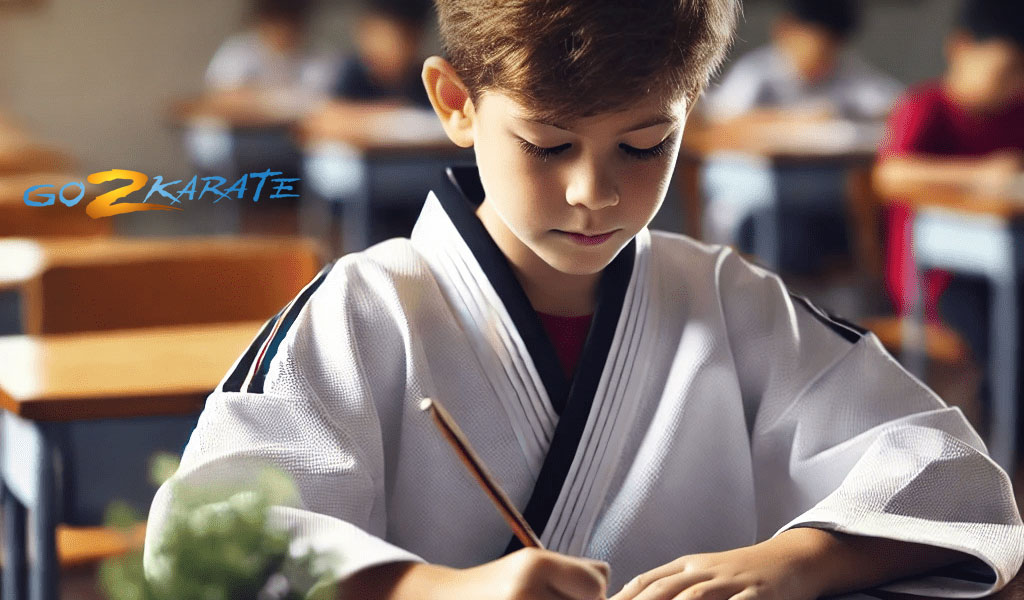Empowering Children to Handle Conflict with Confidence and Poise.
Originally Published on Go2Karate.com. Your Source for Martial Arts Expertise
Conflict is an inevitable part of life, whether it’s disagreements with friends, siblings, or classmates. Teaching children how to resolve conflict effectively is a crucial skill that will serve them well throughout their lives. Martial arts offers a framework for developing these conflict resolution skills, providing children with the tools they need to handle disagreements peacefully and confidently.
One of the core principles of martial arts is respect for others. From the very first lesson, children are taught to treat their peers, instructors, and even their opponents with respect. This focus on respect lays the foundation for effective conflict resolution, as children learn to approach disagreements with empathy and understanding rather than aggression or hostility.
Martial arts teaches children that physical confrontation is never the first option when dealing with conflict. Instead, they learn that communication and problem-solving are the most effective ways to resolve disputes. Instructors emphasize the importance of staying calm, listening to the other person’s perspective, and finding a mutually agreeable solution. This approach helps children develop strong interpersonal skills and the ability to navigate conflicts without resorting to aggression.
One of the ways martial arts fosters conflict resolution is by teaching children how to manage their emotions. During training, children are often put in high-pressure situations, such as sparring or testing, where they must remain calm and focused despite the intensity of the moment. This practice of emotional regulation helps children stay composed when conflicts arise in real life. They learn to take a step back, assess the situation, and respond thoughtfully rather than reacting impulsively.
Martial arts also teaches children to understand the difference between assertiveness and aggression. Children learn that being assertive means standing up for themselves in a respectful and confident manner, while aggression involves trying to dominate or harm others. This distinction is important for conflict resolution, as children learn that they can advocate for themselves without escalating the situation. By practicing assertiveness, children become more confident in addressing conflicts directly and fairly.
The structure of martial arts classes also provides opportunities for children to practice conflict resolution in a controlled environment. For example, during partner drills or sparring sessions, children must work together to ensure that the practice is safe and productive. If a disagreement arises, they are encouraged to communicate openly and resolve the issue with the guidance of their instructor. These experiences teach children how to handle conflicts constructively and cooperatively.
Parents often notice that their children become more adept at resolving conflicts after starting martial arts training. Children who may have previously struggled with managing disagreements or handling frustration learn to approach conflicts with greater maturity and self-control. This improvement extends to their interactions with friends, siblings, and even adults, leading to more harmonious relationships and a greater sense of personal responsibility.
Martial arts also reinforces the idea that conflicts can be opportunities for growth. Instructors encourage children to view disagreements as learning experiences that can help them become better communicators and problem-solvers. By embracing this mindset, children become more open to resolving conflicts peacefully and finding solutions that benefit everyone involved.
Remember, conflict resolution is a vital life skill that can be developed through practice and patience. Martial arts provides children with the tools they need to handle conflicts with confidence, respect, and poise. These skills will serve them well in their interactions with others, helping them navigate disagreements in a positive and constructive way.

Source: The Go2 Karate Library – Where Martial Arts Enthusiasts and Professionals Find Expert Guidance.
